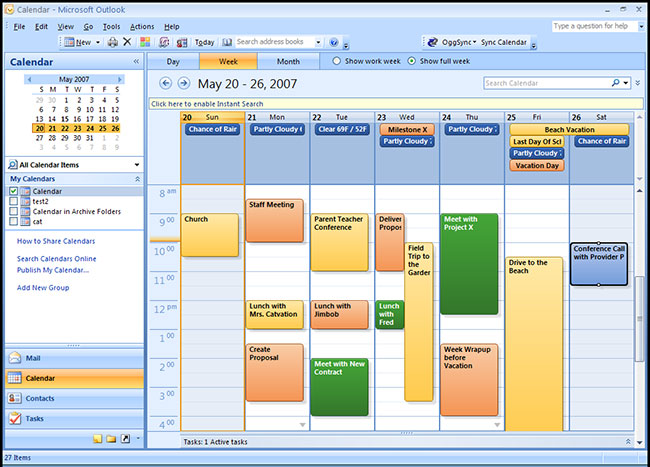Outlook is a well-recognized personal information manager. This application is developed by Microsoft and is very useful for email communication as well. Although there are also other applications introduced by Microsoft which also serves as email clients like Windows Live Mail, Outlook Express but still MS Outlook is user’s first choice. In this post I will discuss MS Outlook and its corresponding file structure in detail. Let’s meet with MS Outlook.
Microsoft Outlook famous E-mail client
MS-Outlook is a most famous email client introduced by Microsoft. Outlook works a PIM (Personal Information Manager) and can also be used as standalone application. Outlook allows user to send and receive emails, calendars sharing, task management and many more tasks. Moreover users can also use Microsoft with Exchange Server and this can be considered as additional benefit of using Outlook. With the growing era of technology user demands also raised up and to meet such type of demands Microsoft introduced Outlook 2013. Prior to Outlook 2013 version available of Outlook are:
- Outlook 2010
- Outlook 2007
- Outlook 2003
Outlook stores all information of user mailbox in PST file format. PST is main repository of user mailbox and described as Personal Storage table. PST files follows B tree structure and supports for UNICODE format. Prior versions of Outlook (2003) supports ANSI format for PST files. PST works very well with POP3 account. Here is complete information about PST file.
File Extension: .pst
File Location: Depend on version selected by User:
Outlook 2013: Windows 8
Drive: Users<username>App DataLocalMicrosoftOutlook
Or
Drive: Users<username>RoamingLocalMicrosoftOutlook
Windows 7 / Windows Vista
Drive: Users<username>DocumentsOutlook File
For all user who are using previous version of Outlook PST file location is :
Windows 8 / Windows 7 / Windows Vista
Drive: Users<username>App DataLocalMicrosoftOutlook
Windows XP
Drive: Documents and Settings<username>Local SettingsApplication DataMicrosoftOutlook
File Size: File size of PST file also depend on version selected by user.
Outlook 2013: Up to 50 GB
Outlook 2010: Up to 50 GB
Outlook 2007: Up to 10 GB
Outlook 2003: Up to 2 GB
Limitations with Outlook PST File
PST files are very complicated files once these file got corrupt then user has to face big loss of data. Let me discuss common scenarios that let PST file in state of corruption.
Size Limit: I already told user about file size of PST file. Prior version of Outlook has only 2GB of file size. Most of time user mailbox is full of mails not only mailbox in fact sent box too. User is unaware of fact that sent items folder are also responsible for large size of PST file. Therefore users are advised to clean their sent item mailbox after replying to emails. This will maintain size of PST file and also make your Outlook work smoothly.
Antivirus Program: Data is security and safety is must. Everybody take effective steps to secure their data and to secure data they installed antiviruses on their system. These antivirus secure users are PC but also affects users PST file. So while operating PST files make sure antiviruses programs are disabled.
PST file Backup: Your mailbox information is very important what if all of a sudden you get to know about PST file corruption. In that case you have only corrupted PST file. To avoid such type of worry take backups of your PST file in a regular time period.
However after discussing in brief about PST file I would also like to share solution to overcome PST file limitations. While working with Outlook it may be possible user’s PST file got corrupt. In that case what we will do to overcome the loss. Solution is very simple to overcome such loss user can go for advance PST Repair utility. PST Repair utility will help user to repair damaged or corrupted PST file. To know more about PST Repair utility please visit: www.scanpst.net
